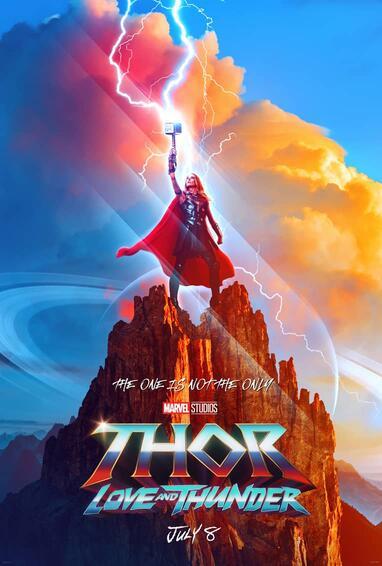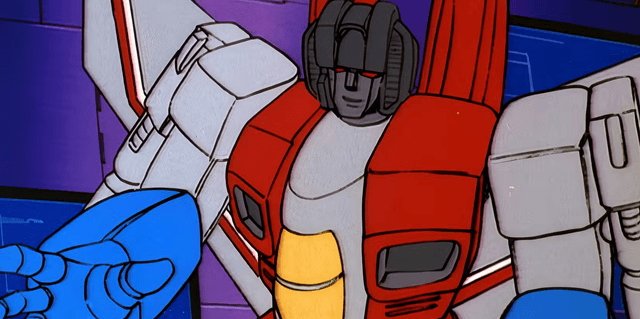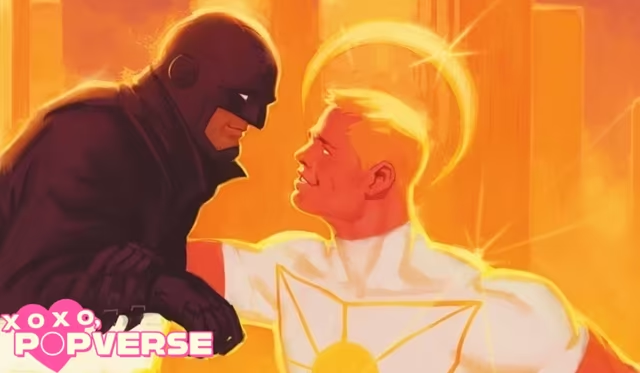If you click on a link and make a purchase we may receive a small commission. Read our editorial policy.
(Not) giving the fans what they want: What Thor: Love and Thunder means for the MCU audience
This is not a defense of Thor: Love and Thunder. I'm just a bit confused.

One of the most shocking recent twists in the world of the MCU (at least to me) is the (what I consider to be) disproportionately negative response to Taika Waititi's second crack at the Thor franchise—Thor: Love and Thunder.

When I went to see the movie, I thought it was a totally fine, funny, if somewhat unbalanced, MCU movie, but I should have been paying more attention to the energy in the theater. When I think back, I realize that the rest of the audience's response was pretty cold. Laughs that were landing for me (Russell Crowe's Zeus, for example) were not landing for other people. The normal post-movie hum I would expect from an average to above average Marvel project was missing too. It was weirdly quiet.
Now there's a lot of reasons to not like a movie, and I'm not saying that my response to any movie is or should be the only one. But, over the past month or so, I've been thinking a lot about why a movie that I considered mostly enjoyable is being hailed as the worst of an already abnormally bland MCU phase, especially one that included serious clunkers like Black Widow and The Eternals.
Some caveats
First things first, this is not a survey of the entire global audience's reaction to the movie, just some thoughts on my own experiences and how the movie seems to be debated and discussed on the interwebs (which we all know is not always representative of the 'real world').
Second things second, to the studio, this film was likely considered a large success, raking in over $700 million dollars and performing even better than pre-pandemic Ragnarok domestically.
Third things third, when we're considering this type of movie and the type of person to tweet or write about it (which includes me), we also need to accept the very real fact that sometimes an audience doesn’t judge a film as a film but by what they want and/or expect out of it.
All that being said, I think that most of the discontent (beyond any of the more obvious sexism, racism, and homophobia) with this film comes from three major angles.

Fans have hit the tipping point(s)
Bizarrely enough, Thor: Love and Thunder may be a representation of hitting two tipping points, one dealing with Taika Waititi as a director and one regarding the MCU in general.
For the past few years Taika Waititi has been enjoying a cultural moment. However, it is likely that, especially considering the outwardly negative social media response to him and some of his work recently, he is hitting the wall where people are annoyed by a previously beloved figure due to their oversaturation and constant presence in 'the conversation.' Social media response to Waititi's work has shifted from 'I'll see anything he does' to 'That guy again? Don't you find him annoying?'
People who are put on pedestals are often dragged off of them, whether or not there's a 'reason' to it beyond shifting tastes and general pop inundation (even Katharine Hepburn had been declared "Box Office Poison" once)— and the reaction to Thor: Love and Thunder may be illustrative of Taika Waititi's version of that cycle.

Speaking of cycles, the MCU seems to finally be wearing through people's patience too—at least, in a way. While fans are still thrilled to rush for movie tickets to see the big MCU blockbusters, the problems that they used to happily ignore are starting to seem a bit more glaring after more than a decade of the same issues again and again.
One of the main complaints about Love and Thunder is the CGI (it doesn't help that Waititi made some very unwise and uncool jokes about the CGI in his own movie, especially considering the conversation around the mistreatment of VFX workers working with Marvel), an issue that has been raised about more than a few Marvel movies, with the worst offenders including Waititi's own Thor: Ragnarök, as well as Black Panther and Infinity War.
The other two major issues with Marvel movies have to do with lackluster villains and lackluster final battles (which are often intertwined). While Christian Bale's Gorr did slip into real creepiness from time to time, he wasn't quite as menacing as you'd like him to be, which left that final big battle robbed of any emotional power or stakes. Waititi dresses the situation up with some kids stuff and silliness, but not all fans like kids stuff, and they certainly don't like silliness. Speaking of silliness…
Fans want to be taken seriously

One thing that I noticed around a lot of the conversation about the 'cheapening' of the character Thor and the world he exists in. While this story did less of a cheapening of Thor than I'd say was accomplished in Ragnarok, I think that comment speaks to another emotion.
I don't think that the issue that fans are having with Thor is that he's being 'cheapened,' but that the very concept of a superhero and a superhero story is being poked at for fun. I'd argue that the success of the newest Spider-Man movie has implied that audience goers want to be told that they're right for loving the things that they love and that they should be rewarded for it.
For Marvel fans, Thor: Love and Thunder poked a little too much fun at the audience, in a similar way to what The Last Jedi did (another surprisingly polarizing movie). The popular Marvel comedies Guardians of the Galaxy and Ant-Man, while funny, never made fun of actual heroism or heroes in the way that Waititi did in this movie. The humor in Love and Thunder, like Thor being in a relationship with his former hammer and current axe (which I found funny, by the way), making Zeus a joke, and throwing in some random kids to say some kids stuff, isn't the kind of humor that really lands with a Marvel-trained audience who prefer their humor in the form of quips and references.
This is particularly interesting, as this type of true meta-silliness has recently done quite well in animation with the Harley Quinn show and Star Trek Lower Decks, but, those shows are reaching pretty different audiences. Marvel fans want to be cool and want to be told that they're cool (in the way that Deadpool's meta jokes make them feel cool). Or at least that's what the previous movies have trained them to want. Speaking of training…
Fans want more

This is a pretty obvious one, and one that has dogged the MCU throughout its reign. Thor: Love and Thunder debuted after two huge universe-impacting Marvel movies: Spider-Man: No Way Home and Doctor Strange in the Multiverse of Madness. After those movies, fans might have wanted something splashier, something that tapped into the multiverse and expanding galaxy of the MCU. Love and Thunder didn't change the MCU at all. In fact, the promised Guardians of the Galaxy crossover ended up being more of an emotionless cameo than an actual appearance.
While Black Widow and Shang-Chi both stood as standalone movies, because of Black Widow was set in the past and because Shang-Chi hadn't tied into the Avengers yet, there was little to no expectation for something bigger. But, with Thor, one of the only remaining OG Avengers, there was always the hope of something bigger, and that hope was not met.
What's next then?

Overall, Love and Ragnarok could mark an interesting turning point in the long slate of MCU past and MCU future. This may be the beginning of an ongoing discontent, as fans begin to feel more frustrated with issues they used to ignore. It could finally be the setting in of that Marvel fatigue that everyone's been talking about for ages. It could also just be the wrong movie at the wrong moment.
Maybe five or ten years down the line, people will rediscover the movie with some joy or maybe the movie will be forgotten entirely. It's hard to know what people want, what they will like, and what will stick in their minds as good or as bad. And that's the biggest challenge that faces Marvel Studios now that they ahve finished landing the first big plane (to much applause) and have to launch a shuttle into unknown space. Audiences change over time. What they wanted a year ago is not what they want now, and will not be what they want in five years. It's a tricky road to tread, and as movie budgets go up and fewer movies are made, the stakes feel like they're getting higher every year.
Everything you ever wanted to know about Thor and Jane Foster’s romance
Follow Popverse for upcoming event coverage and news
Find out how we conduct our review by reading our review policy
Let Popverse be your tour guide through the wilderness of pop culture
Sign in and let us help you find your new favorite thing.
















Comments
Want to join the discussion? Please activate your account first.
Visit Reedpop ID if you need to resend the confirmation email.